- Home
- Neil Gaiman
InterWorld Page 13
InterWorld Read online
Page 13
You’re in a Magic region, now, Jay’s voice continued. Newtonian physics are more of a suggestion than a hard-and-fast rule. It’s strength of will that’s important.
It was a rehash of the lectures from Practical Thaumaturgy, or what we called “Magic 101.” “‘Magic’ is simply a way of talking to the universe in words that it cannot ignore,” our instructor had told us, quoting someone whose name I’ve already forgotten. “Some parts of the Altiverse listen—those are the Magic worlds. Some don’t and would rather that you listened to them. Those are the Science worlds. Understand that, and the whole thing is kind of simple.”
Of course, “kind of simple” is a relative concept in a school where even the remedial classes would give both Stephen Hawking and Merlin the Magician nosebleeds. Still, I had learned enough to know that the place I was in now was a place of raw and unfocused magic. A “subspace” that worked more by the rules of a collective consciousness than by mechanistic principles.
Will. That was the key.
You got it, said Jay in the back of my head. Now bring it home.
That giant evil woven doughnut thing was increasing in size as I fell toward it. It didn’t look particularly soft, and it looked damn hard to miss.
Okay then, I decided. I wouldn’t miss it. But I was not falling toward it—I was rising gently toward it. Rising so slowly, so gently that when I touched its surface it would be like thistledown touching the grass, a feather landing on a pillow—so delicately as to barely be there at all.
All I had to do was convince this part of the Altiverse that I wasn’t tumbling to my doom.
Which meant convincing myself . . .
I’m not falling, I told myself. I’m rising, easily and lightly. Soft and slow . . .
And I managed to ignore the tiny, sensible voice in the back of my head that was screaming in fear.
I wasn’t falling. I wasn’t falling. . . .
It seemed like the wind in my face was easing up. Then everything suddenly shifted perspective a hundred and eighty degrees, and while my stomach was still trying to deal with that . . .
I hit the surface of the ship a lot harder than thistledown touching grass—hard enough, in fact, to knock the wind from my lungs and leave me gasping. But nothing was broken. I said thank you to Jay’s voice in the back of my head as I lay on the surface of the ship, holding on to a rope, trying to catch my breath.
Eventually I was able to sit up and look around. Hue was nowhere to be seen—hadn’t been since he somehow shifted me from the dungeon to the Nowhere-at-All. Okay, I was on my own—and I was on the ship.
Now what?
The answer wasn’t long in coming. Suddenly a hand grabbed me by the neck. More hands hauled me to my feet. They forced my arms behind my back and they marched me into a turret and down a dozen narrow stairwells, deep inside the huge dreadnought, to an enormous chamber that looked to be part map room, part inquisition chamber and part high school auditorium.
There was a smell in that room as if something had died some months ago, and they hadn’t yet found what it was to take it away—or didn’t care. It was a smell of rot and decay and mold.
Lady Indigo and Neville the jelly man were there, along with fifty or more other people I had never seen before. Some of them looked standard human—some were a lot more exotic.
And then there was one that I’d never seen before, but I knew who he was the minute he entered. He was the biggest man I had ever seen: so big, and so perfectly proportioned that it seemed as if everyone else in the room were no bigger than a little child. He wore black and crimson robes. His body, what I could see of it, was human and muscled like Michelangelo’s David. It was flawless.
But his face . . .
How to describe it? If you ever saw him, you’d never be able to forget him. His face would swim up at you as you began to fall asleep, and you’d wake up screaming.
Imagine a man who had started to transform into a hyena, like a werewolf turning into a wolf. Imagine him caught halfway through the transformation: his face half snout, his beard half coarse dog hair, his teeth sharp and made for ripping carrion. He had piglike eyes that gleamed red, with horizontal slits, like a ferret’s. A flattened nose and a jaw perpetually twisted into a ghastly parody of a smile.
He reminded me in a distorted way of pictures I’d seen of Anubis, the jackal-headed Egyptian god who conducted the dead to judgment. Maybe that was a better description, since that was pretty much what he was going to be doing to me.
But it wasn’t how he looked that promised nightmares. It was the sense of what lay behind that horrible mutated face—the knowledge that, to this thing, this monster, those nightmares were sweet entertainment. They were Mary Poppins–style Disney dances in the park.
Lord Dogknife smiled at me with sharp, sharp teeth and said, in a voice like honeyed swamp gas, “We were disappointed not to have picked you up in the snare last month, Joseph Harker. Thank you so much for returning.” He turned his hyena head. “You were right, Lady Indigo. The most powerful Walker in a decade. I can smell it. He’ll make fine fuel for the Malefic.”
He turned back to me, and I nearly screamed as those hideous eyes found me again. “You are fortunate,” he told me. “There is no other ship with the facilities to strip you completely of all extraneous matter, to flense you of flesh and hair and bones and fat, to reduce you to your absolute essentials: the power that lets you Walk from world to world, which is the power that lets us travel the Nowhere-at-All. No other ship but the Malefic.
“Take him away,” he said then, and several lackeys approached me as he said it. They seized me and started to drag me away from Lord Dogknife.
There was a sudden sparkle of colors above my head. I recognized the rainbow swirls, and my heart gave a great leap of relief. Hue had appeared and was bobbing toward me. I hoped he was planning to somehow teleport me out of there, as he’d done before when my team and I had been captured by Lady Indigo.
Lady Indigo said, “The mudluff, my lord.” There was no concern in her tone.
“Indeed,” Lord Dogknife said calmly in that thick, glottal voice. “I expected as much.” He held up one hand, to reveal a small glass pyramid, like a prism. He placed it on the floor and took a step back, muttering a single word as he did so. It sounded like “smucklethorrup-gobslotch,” but it probably wasn’t. There was a burst of light, black light—not like the purple light that you shine on posters to make the colors glow, but real black, like rays of obsidian, like a flashbulb going off in negative. It enveloped Hue, who began to turn white, and to shrink, and to change.
I knew that if Hue could have screamed, he would have done so.
“No!” I screamed—but it didn’t matter. The beams of blackness somehow compressed the little mudluff, squeezed him in a direction at right angles to all three dimensions in this world. Then the black rays began shining down into the little prism, and in seconds they were gone, leaving nothing but a white afterimage on the back of my eyes.
Lord Dogknife picked up the prism. Even from where I was standing, I could see a tiny bubble inside it, turning angry reds and furious crimsons. “They told me that the creature had become attached to you, boy,” he said. “So I brought along a holding tank for it. We used them, oh, many years ago, when we tried to colonize some of the madness places between the worlds. The creatures were a nuisance. The little tank won’t hold it for long—ten, twenty thousand years at the most—but I fancy none of us will be around when it breaks out.”
He put the prism into an inner pocket.
“I have often wished,” he said to me—and I don’t think I can ever really explain how disquieting and horrible it was to have him talking directly to me, looking straight into my eyes. It was bad enough when he addressed the room, but when Lord Dogknife looked at me, I felt like he knew every bad thing I’d ever done. And more than that—that he felt the bad things I’d done were the only bits of me that mattered and that everything else was insignificant and st
upid.
“I have often wished,” he said again, “that we could harness the mudluffs. If we could use their energy, the way we use Walker energy, we would rule every world and every universe with ease: The whole glorious panoply of creation would be ours. But, alas, it does not seem practicable. There was one such attempt: But where the Earth upon which it was tried once was, now there is nothing but cosmic dust. Nothing larger than a baseball remains of it. No, we must make do with the life essences of children like you.” And he winked at me, as if he were telling me some slightly dirty joke. He was the thing that smelled like it had died a long time ago, the smell I’d noticed upon entering the huge chamber. You could taste the rottenness under the scent of dust.
I have never, in my life, been so scared of anything as I was of him. There may have been a little magic in the fear. But if there was, he didn’t need it.
“In your lifetime that is still to come,” said Lord Dogknife, “or to put it another way, boy, in the next thirty, forty minutes, you may take comfort in knowing that your essence—your soul, if you like—will, in company with so many of you little Walkers, be powering the ships and the vessels that will allow my people and our culture to gain the preeminence in all things that we so justly deserve. Does that make you happy, boy?”
I didn’t say anything.
The yellow fangs spread into a parody of a friendly smile. “I’ll tell you what,” he said. “Go down on your knees to me now. Kiss my feet. Promise to serve me forever in all things. Then I’ll spare your life. We have enough fuel to power the invasion. We brought every bottled soul we could find to this party. What do you say? Kissie footie?” And he waggled one of his huge feet at me. It was covered with black hair, and the toenails were claws.
I knew I was going to die then, because I wouldn’t kiss his feet. I looked him in the eyes and said, “You’d kill me anyway, wouldn’t you? You just want to humiliate me first.”
He laughed, and the room filled with the stench of rank meat, and he pounded on his leg with his hand as if I’d just told the best joke in the world. “I would!” he said, between bursts of laughter. “I would kill you anyway!” Then he drew breath. “Ohh,” he said, “I needed that. I’m so pleased you decided to drop in.”
Then: “Take him down to the rendering room,” he told those holding me. “Time to resect and reduce him and the others. No need to make it painless.” He turned back to me and winked once more and explained conversationally, “We find that a lot of pain inflicted on the Walkers during the whole rendering process actually spurs on their spirits when they’re bottled. Gives them something to focus on, perhaps. Well, good-bye, lad,” and he reached out a huge hand and pinched my cheek, almost affectionately, like an old uncle.
Then he squeezed, harder, and harder. I promised myself I wouldn’t cry out, but the pain became impossible to bear.
I screamed.
He winked at me once more slowly, as if we’d just shared a joke nobody else in the room had gotten, and he let go of my cheek.
They twisted my arms behind my back and they marched me out of there. I was so relieved to be away from Lord Dogknife that, for a few moments anyway, I barely cared that I was on my way to the rendering room.
Whenever I’d run across the phrase “a fate worse than death” in books, I’d wondered about it. I mean, death is about as bad as it gets, and as final, in the usual run of things, I always thought.
But the idea of being killed and cooked and stripped down to whatever makes me me—and then spending the rest of eternity in a bottle being used as some kind of cosmic power pack . . .
It made death look good, you know. It really did.
CHAPTER SEVENTEEN
THE CORRIDORS GOT NARROWER and darker as we descended from level to level. They also got hotter, as if the huge dreadnought were steam driven, which increased my sense of descending into an inferno. From the moment I had entered the Malefic, dark and gloomy had been the order of the day, and it only got worse as we went down.
We went down still more narrow stairwells—the “rendering room” had to be on one of the lowest levels of the ship. I was grateful for that. It gave me more time to think. There were two guards ahead of me and two behind. The corridors and stairs were, probably intentionally, like some kind of labyrinth, and I knew that I was hopelessly lost.
But as tight and confining as those corridors were, they were nothing compared to the hamster maze my own mind was running in.
Lord Dogknife had ordered me killed along with “the others.” That meant only one thing: My team might still be alive.
And if they were, we still had a ghost of a chance.
Only a ghost, though. Five trapped versions of myself against who knew how many thousands of HEX troopers, sorcerers, demons . . . frankly, it would be long odds if we were up against just Lord Dogknife and Lady Indigo. Without Hue to help us, we had about as much chance as . . . well, as nothing.
I knew all that. Even so, just the possibility that they might still be alive raised my spirits.
There was something definitely hellish about the lower levels of the Malefic. I started to imagine that I could smell sulphur and brimstone on the air. And then the guards in front of me opened a heavy wooden door, bound and bolted with bronze, and pushed me roughly through it, and the smell got worse.
Imagine Hell, the way you’ve always pictured it since childhood. Now, imagine that the worst torture pit of Hell is in a room barely as big as a high school classroom. Imagine it was designed by someone who had seen too many really cheap old horror movies, the kind they show late at night in black and white. That was the rendering room.
The rendering room was windowless, just like nine-tenths of the rest of the rooms I’d seen. On the walls hung various tools and implements, scary and sharp and huge. I didn’t study them too closely, but they looked like they were to help “cook us down” once we were in the pot and had been boiling for a while. At the back of the room, sitting on a raised grill, was an honest-to-goodness cooking pot, forged of bronze and easily ten feet across, like a giant’s cauldron or a cartoon cannibal pot, raised high on three thin metal legs. Some kind of liquid was boiling inside it—from the smell, most definitely not water. It smelled like liquid sulphur, and ammonia, and preserving fluids. There was blood in there, too, I think—the kind of magic they did on that ship draws a lot of power from blood. The fire underneath was being fed with various salts and powders. It burned now green, now red, now blue as different chemicals were added. The smoke and fumes clouded the air and stung my eyes and hurt my lungs. There was a little creature, who looked a bit like a toad and a bit like a dwarf, feeding the fire with the powders, being careful to make sure that only one small handful of powder went on the flames at a time.
None of the people doing the tending and preparation were human. It was kind of hard to make out details, since most of the light in that place came from the flames under the pot, but they had tentacles and feelers. I didn’t know if they came from fringe worlds way out on the Arc or if they were people transformed into things that didn’t mind the thick chemical smoke or the burning air or the things they had to do down there. I don’t suppose it matters. My guards, on the other hand, minded the smoke and the air a lot. Two of them stopped outside, one on each side of the closed door. The other two, who walked me into the room, had handkerchiefs over their mouths and noses, and tears streaming down their faces.
A thing came toward us. It could have been a praying mantis, if they grew them that big and gave them human eyes. It chittered disapprovingly at my captors.
“Is keep out here,” it told them. “Not for breathing. Rendering about to commence. Go away. Leave this place. Tch-tch-tch! Not for your kind in here now.”
And then the smoke cleared for a moment, and I saw them on the other side of the cauldron. My heart leapt. They were trussed, hand and foot, and they were on the ground, like rabbits ready for the pot. My teammates.
I could see at a glance that they were
all there: Jai, Jakon, J/O, Jo and Josef. And they were conscious. They looked haggard and hopeless. I didn’t know how long it had been for them—days? weeks? months?—but it didn’t look like it had been a pleasant stay. All of them had lost weight, even little J/O.
They also didn’t look surprised to see me. Maybe word had already filtered down that I’d been captured, or maybe they’d just been expecting it. I’d screwed up enough so far; it was kind of obvious that I’d do it again, one final time. They simply looked at me, and the resignation in their faces cut me to the bone.
What made it worse was that I knew they were right. This wasn’t the kind of place that you made a dramatic last-minute escape from. This was the kind of place you died in. Painfully, slowly and full of regret.
One of my escorts let go of me, took a step forward and said, “Got another one to pop in the pot. Lord Dogknife’s orders.”
There was a belch of sulphur from the flames below the pot, and my other guard took his hands off me to wipe his streaming eyes.
And that was when I sprang into action.
Well, “sprang” isn’t quite the word, but it sounds better than “stumbled and kicked,” which is what I did. I stumbled forward, and then I kicked, as hard as I could, at the nearest strut of the tripod holding up the giant cauldron.
I wish I could tell you that I had a brilliant plan. I didn’t. I just wanted to buy us a little more time. Or do something, anyway.
It was like being in a car accident. Everything happened so slowly, then . . .
The leg of the tripod leaned over, out of position.
I could see my guards, coughing and spluttering, coming for me.
The cauldron began to tip.
The toad thing, who had been feeding the various salts into the flames so carefully, dropped the whole tray of powders into the flames as it sprang back out of the way, straight into the nearest guard, who cursed and stumbled backward into the mantid.

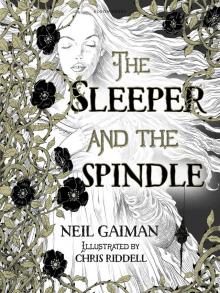 The Sleeper and the Spindle
The Sleeper and the Spindle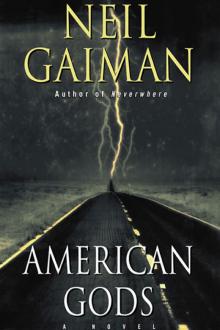 American Gods
American Gods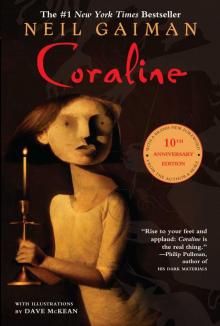 Coraline
Coraline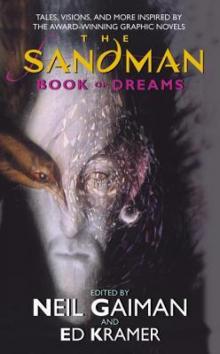 The Sandman: Book of Dreams
The Sandman: Book of Dreams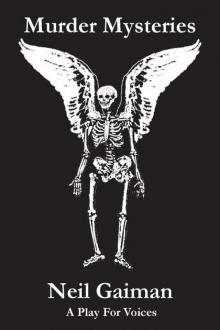 Murder Mysteries
Murder Mysteries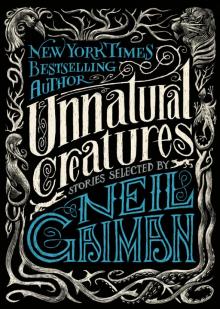 Unnatural Creatures
Unnatural Creatures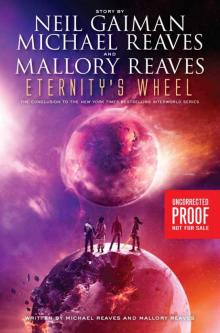 Eternity's Wheel
Eternity's Wheel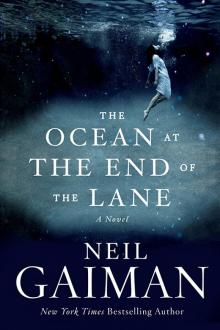 The Ocean at the End of the Lane
The Ocean at the End of the Lane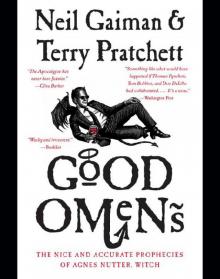 Good Omens
Good Omens Stardust
Stardust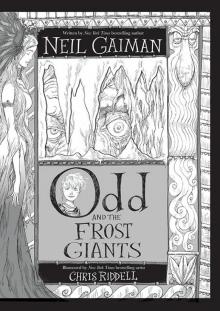 Odd and the Frost Giants
Odd and the Frost Giants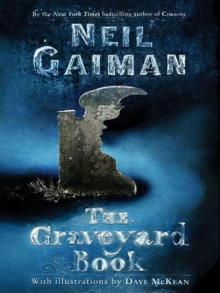 The Graveyard Book
The Graveyard Book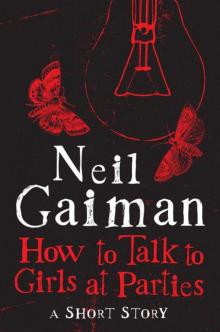 How to Talk to Girls at Parties
How to Talk to Girls at Parties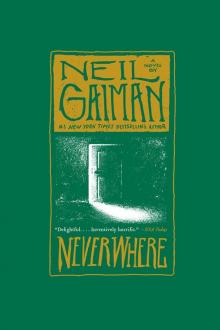 Neverwhere
Neverwhere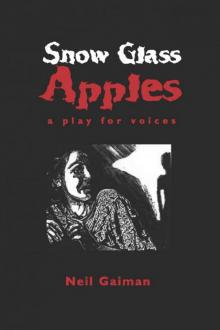 Snow, Glass, Apples
Snow, Glass, Apples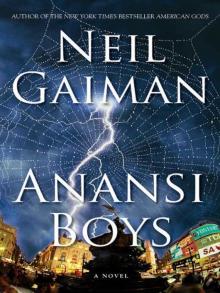 Anansi Boys
Anansi Boys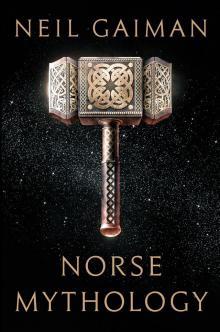 Norse Mythology
Norse Mythology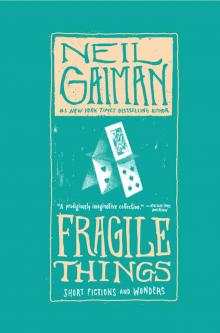 Fragile Things: Short Fictions and Wonders
Fragile Things: Short Fictions and Wonders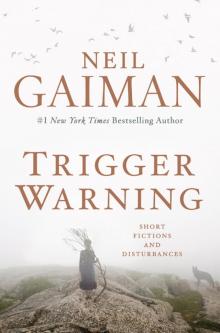 Trigger Warning: Short Fictions and Disturbances
Trigger Warning: Short Fictions and Disturbances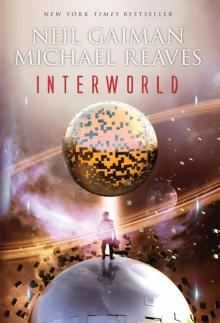 InterWorld
InterWorld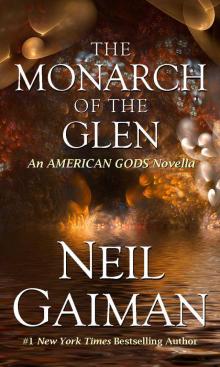 The Monarch of the Glen
The Monarch of the Glen The Neil Gaiman Reader
The Neil Gaiman Reader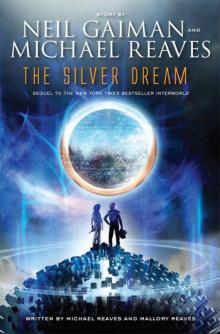 The Silver Dream
The Silver Dream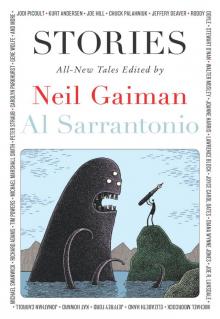 Stories
Stories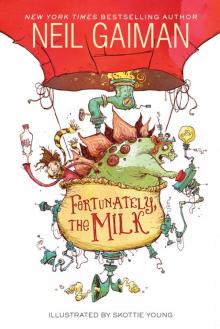 Fortunately, the Milk
Fortunately, the Milk Art Matters
Art Matters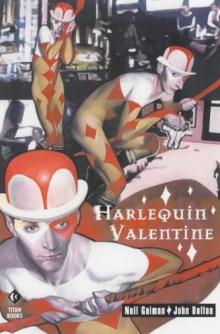 Harlequin Valentine
Harlequin Valentine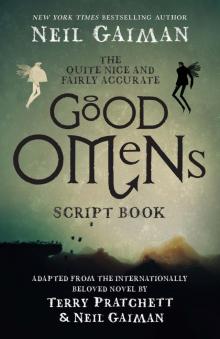 The Quite Nice and Fairly Accurate Good Omens Script Book
The Quite Nice and Fairly Accurate Good Omens Script Book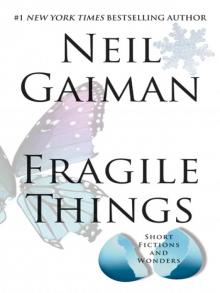 Fragile Things
Fragile Things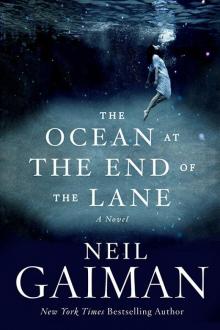 The Ocean at the End of the Lane: A Novel
The Ocean at the End of the Lane: A Novel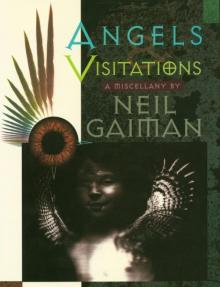 Angels and Visitations
Angels and Visitations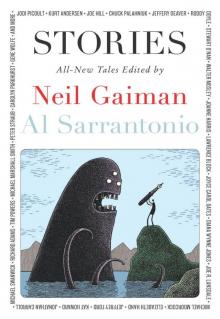 Stories: All-New Tales ngss-1
Stories: All-New Tales ngss-1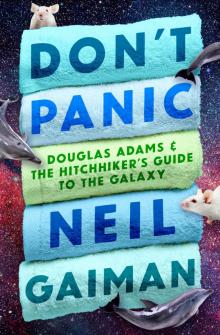 Don't Panic
Don't Panic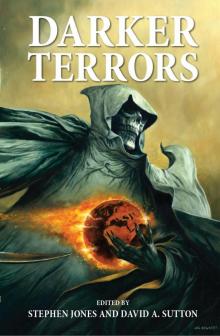 Darker Terrors
Darker Terrors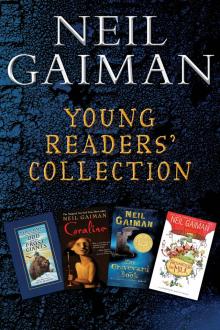 Neil Gaiman Young Readers' Collection
Neil Gaiman Young Readers' Collection A Study In Emerald
A Study In Emerald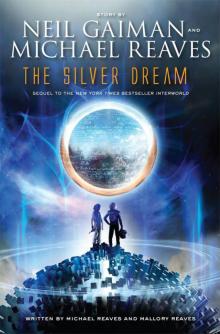 The Silver Dream: An InterWorld Novel
The Silver Dream: An InterWorld Novel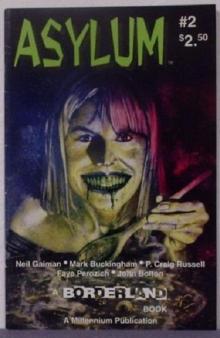 Feeders and Eaters
Feeders and Eaters Psychos
Psychos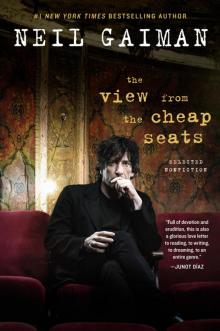 The View from the Cheap Seats
The View from the Cheap Seats Trigger Warning
Trigger Warning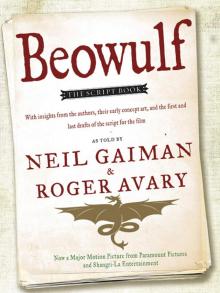 Beowulf
Beowulf Nessun Dove
Nessun Dove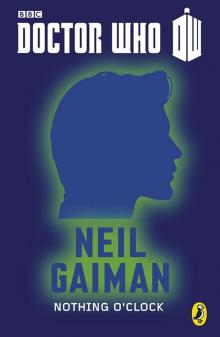 Doctor Who: Nothing O'Clock: Eleventh Doctor: 50th Anniversary
Doctor Who: Nothing O'Clock: Eleventh Doctor: 50th Anniversary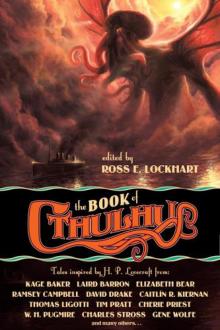 The Book of Cthulhu
The Book of Cthulhu